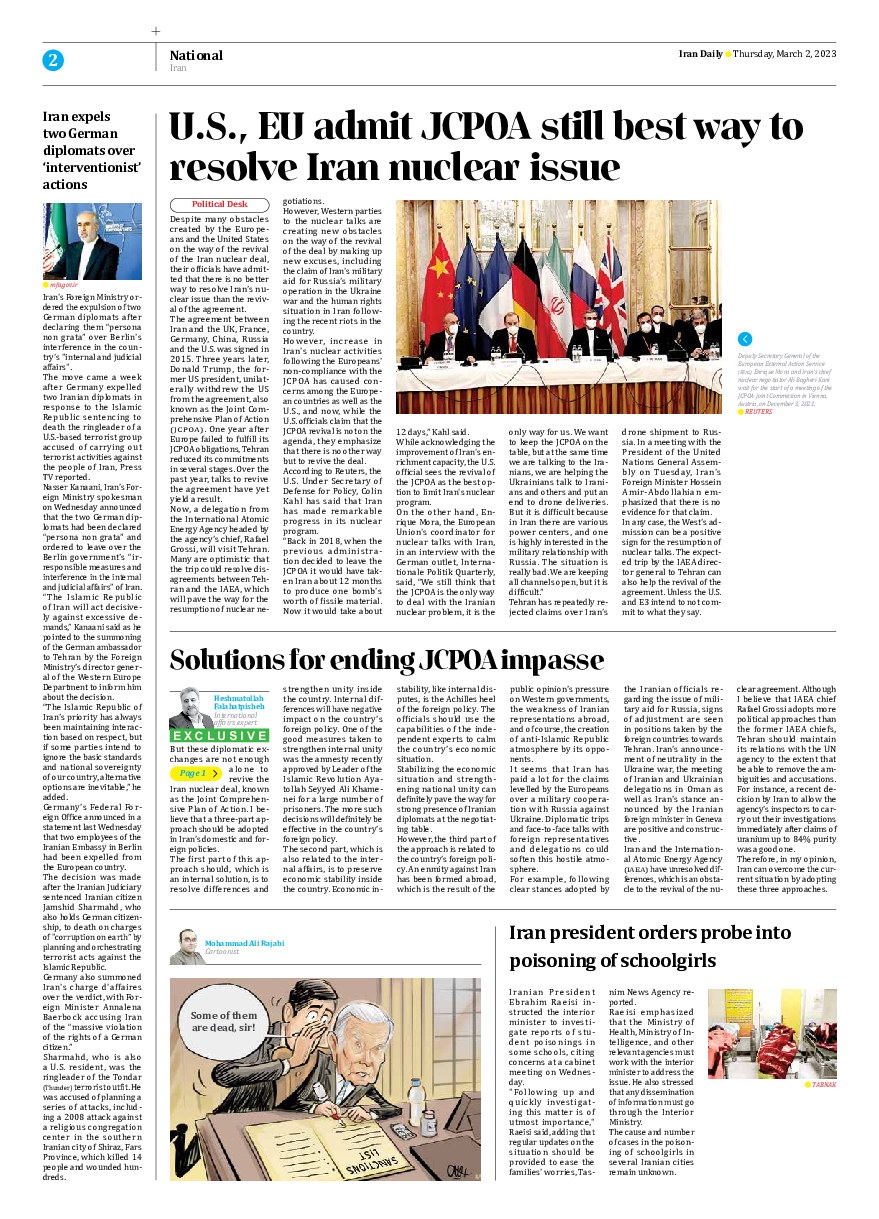
Solutions for ending JCPOA impasse
Page 1
Heshmatollah Falahatpisheh
International affairs expert
But these diplomatic exchanges are not enough alone to revive the Iran nuclear deal, known as the Joint Comprehensive Plan of Action. I believe that a three-part approach should be adopted in Iran’s domestic and foreign policies.
The first part of this approach should, which is an internal solution, is to resolve differences and strengthen unity inside the country. Internal differences will have negative impact on the country’s foreign policy. One of the good measures taken to strengthen internal unity was the amnesty recently approved by Leader of the Islamic Revolution Ayatollah Seyyed Ali Khamenei for a large number of prisoners. The more such decisions will definitely be effective in the country’s foreign policy.
The second part, which is also related to the internal affairs, is to preserve economic stability inside the country. Economic instability, like internal disputes, is the Achilles heel of the foreign policy. The officials should use the capabilities of the independent experts to calm the country’s economic situation.
Stabilizing the economic situation and strengthening national unity can definitely pave the way for strong presence of Iranian diplomats at the negotiating table.
However, the third part of the approach is related to the country’s foreign policy. An enmity against Iran has been formed abroad, which is the result of the public opinion’s pressure on Western governments, the weakness of Iranian representations abroad, and of course, the creation of anti-Islamic Republic atmosphere by its opponents.
It seems that Iran has paid a lot for the claims levelled by the Europeans over a military cooperation with Russia against Ukraine. Diplomatic trips and face-to-face talks with foreign representatives and delegations could soften this hostile atmosphere.
For example, following clear stances adopted by the Iranian officials regarding the issue of military aid for Russia, signs of adjustment are seen in positions taken by the foreign countries towards Tehran. Iran’s announcement of neutrality in the Ukraine war, the meeting of Iranian and Ukrainian delegations in Oman as well as Iran’s stance announced by the Iranian foreign minister in Geneva are positive and constructive.
Iran and the International Atomic Energy Agency (IAEA) have unresolved differences, which is an obstacle to the revival of the nuclear agreement. Although I believe that IAEA chief Rafael Grossi adopts more political approaches than the former IAEA chiefs, Tehran should maintain its relations with the UN agency to the extent that be able to remove the ambiguities and accusations. For instance, a recent decision by Iran to allow the agency's inspectors to carry out their investigations immediately after claims of uranium up to 84% purity was a good one.
Therefore, in my opinion, Iran can overcome the current situation by adopting these three approaches.







